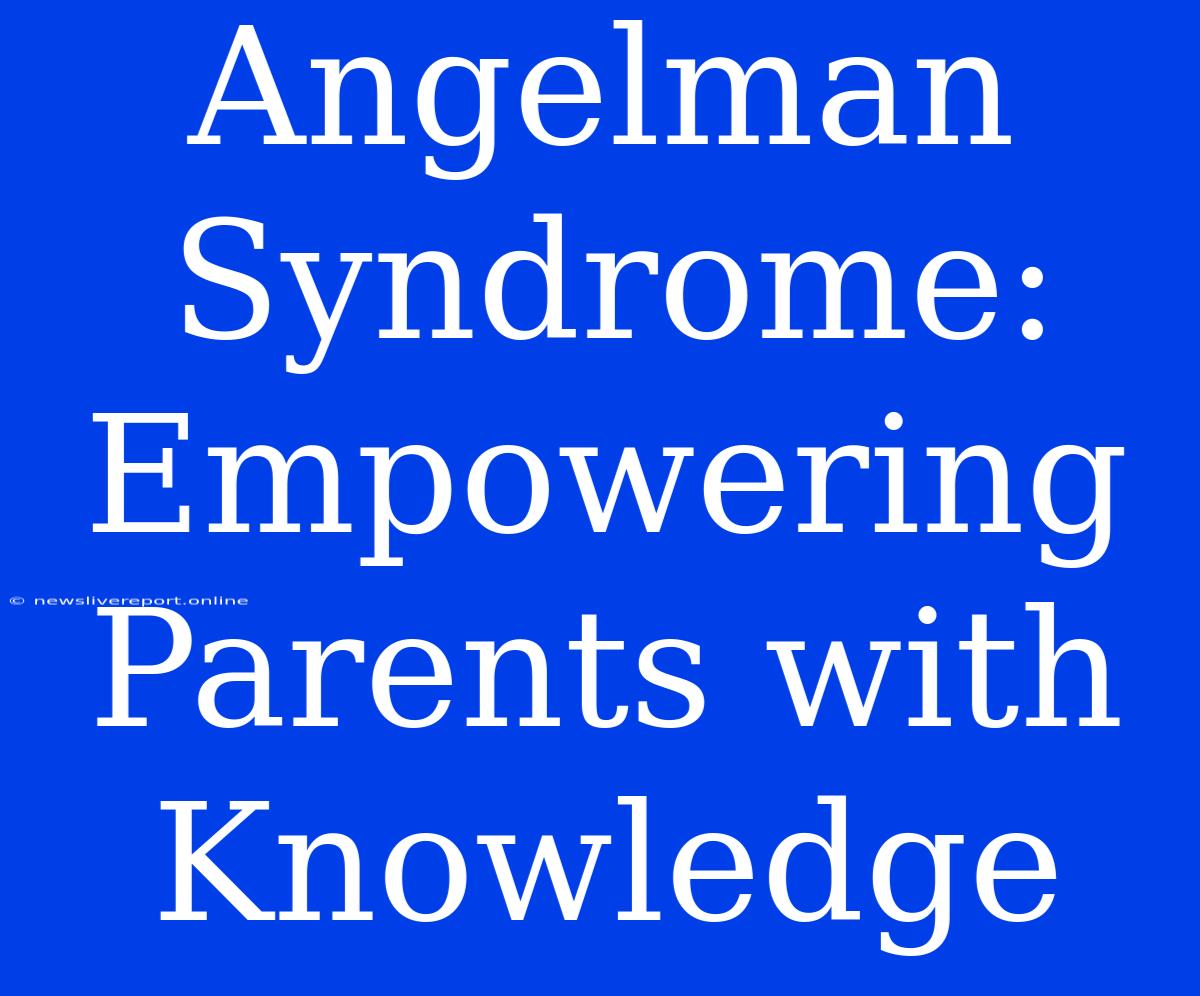Angelman Syndrome: Empowering Parents with Knowledge
Angelman Syndrome (AS) is a rare genetic disorder that affects the nervous system. It is characterized by a range of symptoms, including developmental delays, intellectual disability, speech impairment, seizures, and distinctive behavioral traits. While AS is a lifelong condition, understanding it can empower parents to provide the best possible support for their children.
Understanding Angelman Syndrome
What Causes Angelman Syndrome?
AS is usually caused by a deletion or disruption of a gene called UBE3A on chromosome 15. This gene is responsible for producing a protein crucial for brain development. However, AS can also be caused by other genetic mutations or by a new mutation that occurs spontaneously.
Key Symptoms of Angelman Syndrome:
- Developmental Delays: Children with AS typically have significant delays in reaching developmental milestones, particularly in language and motor skills.
- Intellectual Disability: While intellectual abilities can vary, individuals with AS generally have intellectual disabilities.
- Speech Impairment: Most individuals with AS have severe speech impairments and may communicate using non-verbal methods.
- Seizures: Seizures are common in AS and can range in frequency and severity.
- Movement and Balance Issues: Individuals with AS may exhibit ataxia (lack of coordination), tremors, and difficulty with balance.
- Happy Disposition: Despite the challenges they face, individuals with AS often have a happy, smiling disposition and are easily excited.
- Unusual Behaviors: Some common behaviors include hand-flapping, frequent laughing, and an apparent fascination with water.
Empowering Parents: What to Do
Diagnosis:
If you suspect your child may have AS, consult a genetic specialist for testing. Early diagnosis is crucial for initiating appropriate interventions and support services.
Treatment:
There is no cure for AS, but various therapies and interventions can help manage symptoms and improve quality of life:
- Physical Therapy: Can help improve gross motor skills and coordination.
- Occupational Therapy: Can help develop fine motor skills, improve self-care abilities, and enhance daily living skills.
- Speech and Language Therapy: Can promote communication skills through alternative methods like sign language or augmentative communication devices.
- Medication: Can help manage seizures and other behavioral issues.
- Behavioral Therapy: Can address behavioral challenges and improve social interactions.
Support Systems:
- Connect with Other Families: Support groups and online communities provide valuable resources, emotional support, and a sense of belonging for families affected by AS.
- Advocate for Your Child: Learn about available services and advocate for appropriate education and care.
- Stay Informed: Continuously seek out new research and advancements in AS treatment and management.
Living with Angelman Syndrome
While AS presents challenges, it is important to remember that individuals with AS can lead fulfilling and meaningful lives. With the right support and understanding, children with AS can thrive and reach their full potential. Parents play a vital role in fostering their children's development, advocating for their needs, and celebrating their unique strengths.
Key Takeaways:
- Understanding AS is crucial for empowering parents to provide effective care for their children.
- Early diagnosis, appropriate treatment, and strong support systems are essential for optimizing the lives of individuals with AS.
- Individuals with AS are capable of significant growth and development, leading fulfilling lives with the right support.
- Despite the challenges, families affected by AS can find strength and joy in their journey together.
Further Resources:
- Angelman Syndrome Foundation: [link to website]
- National Angelman Syndrome Foundation: [link to website]
This article aims to provide general information about AS. It is not a substitute for professional medical advice. For further information and personalized guidance, consult a qualified healthcare professional.

